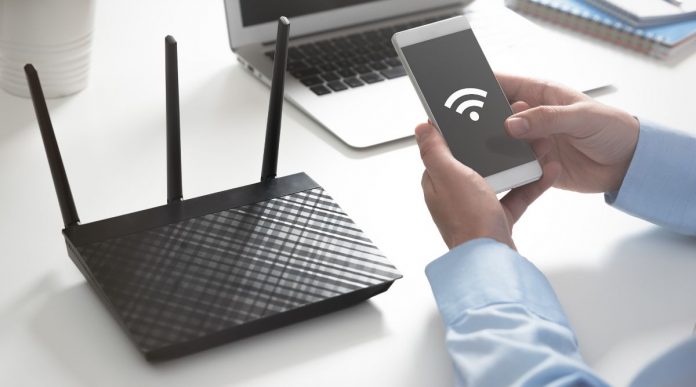Why does my netgear router keep disconnecting? If you find yourself asking this question (or even if you don’t), you need to take the time to read the following article and then implement the steps contained within it. Not only will you be able to ensure that your Netgear router never disconnects again, but you’ll also be able to make sure that your Netgear router continues to perform as well as it possibly can, keeping your data as secure as possible and eliminating any connection-related issues or problems that could potentially exist in the future.It’s the never-ending nightmare of the modern Internet user: suddenly you notice your WiFi connection speed has slowed down to a crawl, or maybe it just disappeared altogether – leaving you in the dark without any idea of what went wrong. And when you look at your wireless router, it seems to be operating normally – so what do you do? It’s time to call for backup! Fortunately, by following our simple troubleshooting guide on why does my netgear router keep disconnecting, we’ll have your wireless connection up and running again in no time. So why not start reading now?
Why does my netgear router keep disconnecting?
Every day people complain about their wireless connections dropping out, in every possible and impossible situation. These complaints can be a pain in the neck for any IT department, but some of them are much more fun to tackle than others. Many times you’ll see that people are blaming their router or access point for connection issues when it’s actually not at fault. That doesn’t make those customers happy, obviously, but we don’t get paid by making you happy so we just have to grin and bear it! In all seriousness though there is a lot that can cause an unstable connection, so let’s take a look at some of them…
One thing I must mention here is that poor cabling can play havoc with your network – regardless of what equipment you use. It could be something as simple as accidentally using too short a patch cable between two devices, which might only cost you $5 but will kill your throughput like crazy because of attenuation (the fancy word for signal loss). The same applies to faulty cables if they break inside. This will either mean zero throughput (assuming it breaks on both ends) or serious latency problems due to errors being introduced into data packets (which sounds far worse than it really is). So yes, bad cabling causes many connectivity woes even when used with high-end gear!
How to fix a netgear router disconnecting issue?
A router disconnection can be frustrating and is probably caused by a variety of factors. The first step in troubleshooting your problem is to identify if you’re dealing with an issue regarding your internet connection or with your netgear router. It may be that there is a connectivity problem at your local cable company, or you may have overloaded signal strength on the router itself. If it’s not a signal strength issue, there could be interference between devices connected to your network; look over all of them and make sure they are properly secured so they do not hinder one another’s signal. If that doesn’t work, it could simply be caused by too many devices on one network, which will cause slowing down as well as eventual disconnection issues due to high usage. Try unplugging some devices from your network to free up bandwidth for those that need it most. And finally, check for firmware updates for both your router and modem—this may solve any problems you’re having with connectivity altogether.
Have you tried resetting your router?
If your Netgear router is experiencing problems, try a reset before you start troubleshooting. Many issues can be resolved by resetting your router; often, you can fix connectivity issues simply by powering down your modem and router for about 10 seconds and then powering them back up. To make sure that you’re doing it right, turn off all of your devices (and make sure there aren’t any unplugged or loose connections). Wait a few seconds before turning them back on again. You should see lights turn on as they power up—if not, something is wrong and it might be time to call tech support. If everything works like it should, though, restarting your modem will solve most problems. In fact, if you have an issue with your internet connection, restarting your modem is always a good first step. The only caveat here is that some modems are designed to reboot automatically after a power outage or brownout (or when losing signal), so if yours does that, it won’t help much. Still, we recommend trying it first because rebooting fixes so many other things!
How to set up a Netgear router?
Setting up a router for your home internet is a pretty straightforward process. First, you’ll need to plug it in and connect your modem to one of its ports. Most modems will have an Ethernet port or three built right in, but if yours doesn’t you’ll need to get an Ethernet cable and attach it from your modem to one of your router’s open ports. After that, you can use Wi-Fi to wirelessly connect other devices around your house to your network, like a laptop or phone. If you’re looking for help getting everything set up, check out our guides on how to set up a wireless network for complete beginners and how to choose a wireless router . For additional assistance, we recommend contacting your ISP directly or calling their tech support line (if they offer one). Your ISP should be able to provide detailed instructions tailored to your specific device setup.
While there are many different ways to configure a router , most routers follow similar procedures when setting them up. To make sure you’re doing things correctly as you go along, try using these tips as a guide while following the manufacturer’s instructions included with your particular device.
Is it time to replace my Netgear router?
When you first purchased your router, you likely put a lot of research into it to ensure that it would be able to support all of your home’s devices. As time goes on, though, some routers begin to lose their steam. You might find that certain devices start disconnecting more frequently or experiencing slower speeds than they used to. When you experience connection issues like these, it may be time for an upgrade. However, before you purchase a new device entirely, keep in mind that there are things you can do to troubleshoot and fix connection issues on your current router and avoid having to buy a new one. This guide will help you get started with some common problems.
Conclusion
The average home user will experience at least one out of five connections issues. But since there are few causes for a router disconnecting and each requires unique solutions, knowing what’s causing your problem is vital to getting things back on track. Start by checking your devices’ Wi-Fi indicators, as well as any lights on your router. If you aren’t sure how to check either of these, find an online guide or ask someone more tech savvy than you for help. Don’t ignore that little red light—it may save you some frustration later on.

